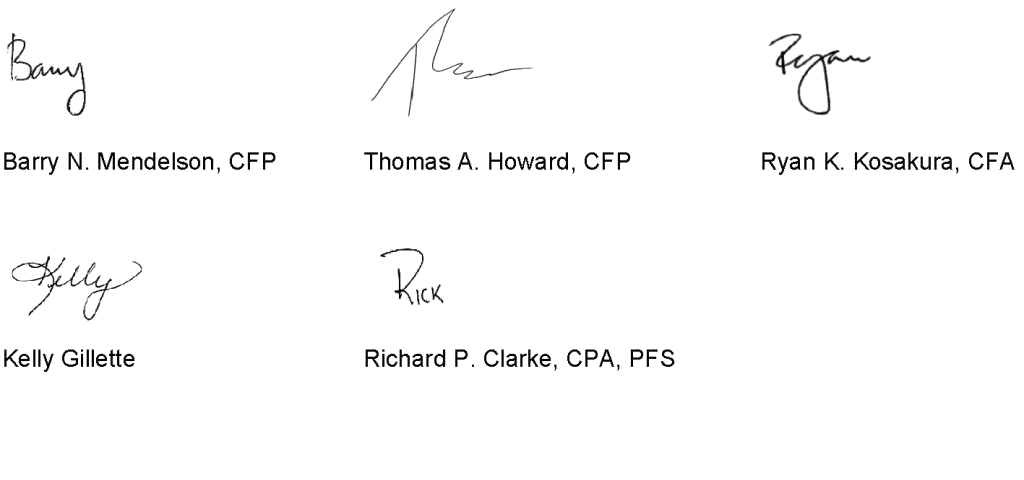In this issue…
- Opportunity Zones and Qualified Opportunity Funds (QOFs)
- What we learned at the 47th Annual Financial Planning Association NorCal Conference
Opportunity Zones and Qualified Opportunity Funds
We have been spending an increasing amount of time doing research and due-diligence on Qualified Opportunity Funds. Congress created the Opportunity Zone program through Tax Cuts and Jobs Act in 2017 to encourage private investment in economically distressed communities by providing tax incentives. This is a potentially huge investment opportunity, but with real and significant risks.
An Opportunity Zone is an economically-distressed community where new investments, under certain conditions, may be eligible for preferential tax treatment. Localities qualify as Opportunity Zones if they have been nominated for that designation by the state and that nomination has been certified by the Secretary of the U.S. Treasury via his delegation of authority to the Internal Revenue Service. Opportunity Zones have now been designated covering parts of all 50 states, the District of Columbia and five U.S. territories.
Opportunity Zones are designed to spur economic development by providing tax benefits to investors. First, investors can defer tax on any prior gains invested in a Qualified Opportunity Fund (QOF) until the earlier of the date on which the investment in a QOF is sold or exchanged, or December 31, 2026. If the QOF investment is held for longer than 5 years, there is a 10% exclusion of the deferred gain. If held for more than 7 years, the 10% becomes 15%. Second, if the investor holds the investment in the Opportunity Fund for at least ten years, the investor is eligible for an increase in basis of the QOF investment equal to its fair market value on the date that the QOF investment is sold or exchanged (i.e. – the appreciation on the investment is tax free)! Furthermore, taxable gains on securities can be deferred into QOFs. In other words, if you have a taxable gain on an investment, you have 180 days to invest those proceeds in a Qualified Opportunity Fund and defer paying taxes on that gain.
There’s a lot of buzz around QOFs right now. Companies are rushing to put together funds or sponsor funds (organizing funds that invest in other QOFs). Some of these firms have little or no experience investing economical-distressed areas – which is why research and due-diligence is so critical. The potential investment gains in this space are very compelling. However, when you invest money or capital for ten years, you are making a significant financial commitment. These types of investments and funds carry numerous risks, each that should be considered carefully. Including, but not limited to;
- Tax legislation risk – We consider this one of the greatest risks, that QOF lose their tax-favored status.
- Liquidity risk – You are committing funds for ten years (and possibly longer).
- Economy risk (if the local, regional, or national economy should decline or fall into a recession). This is even more acute with QOFs because they are limited to already economical-depressed areas.
- Manager or developer risk – Risk the developer runs into problems developing the project.
- Real estate risk – Risk the project, once completed, is not as desirable as forecasted once it available for occupancy.
Qualified Opportunity Funds are just starting to raise and deploy capital. As we find investments that we believe are suitable and compelling for clients, we will keep you informed of them. You’ve heard say time and time again, “We only invest client money in something we would invest our own money in.”
47th Annual Financial Planning Conference
Lastly, At the end of May, Thomas, Ryan and I attended the 47th Annual FPA NorCal Conference – one of the premier (if not the premier) financial planning, wealth management, and investment conferences in the country. During the two-day conference held at The Palace Hotel in San Francisco, we heard industry experts on numerous topics and trends. Below are just a few of the presentations we heard;
Best Practices of Legacy Families: How They Learn and Thrive – Courtney Pullen, leading closely held business transition coach and consultant.
Economic Forecast for 2019: A Roadmap for Investors in the Trump Era – Marci Ross, PhD, Economist, Former CNBC Chief Economist and Co-Host of SQUAWK BOX
Transitioning to Medicare and Social Security – Elaine Floyd, Social Security expert.
Investing in Cannabis: Finding Alpha through the Smoke – Sumit Mehta, leading cannabis investor and banker.
Five Industry Trends Reshaping Financial Advice – Michael Kitces, leading financial expert and visionary.
Authentic Leadership – Mike Robbins, former professional baseball player and best-selling author.
The Nation’s Largest Disaster: Liquid Asset Poverty – Brock Long, former head and Administrator of FEMA (Federal Emergency Management Agency).
Evaluating Existing Variable Annuities: What Every Advisor Needs to Know – Michael Kitces, leading financial expert.
How to Have Tough Conversations with Tact – CrisMarie Campbell & Susan Clarke, Speakers, Authors, and Business Coaches.
How Family Dynamics Impact Intergenerational Wealth Transfers – Jean Dunn, CFP, Leader of Client Loyalty at T. Rowe Price
Essentialism: The Disciplined Pursuit of Less – Greg McKeown, Business Consultant and New York Times bestselling author.
We are excited to share and apply what we learned at the conference with clients.

“Elevation Wealth Partners is unique because the client is the focus of our attention. They come first in everything we do and solutions are centered around them.”
Barry Mendelson, CFP
Financial Advisor & Managing Partner
Sources: Internal Revenue Service

